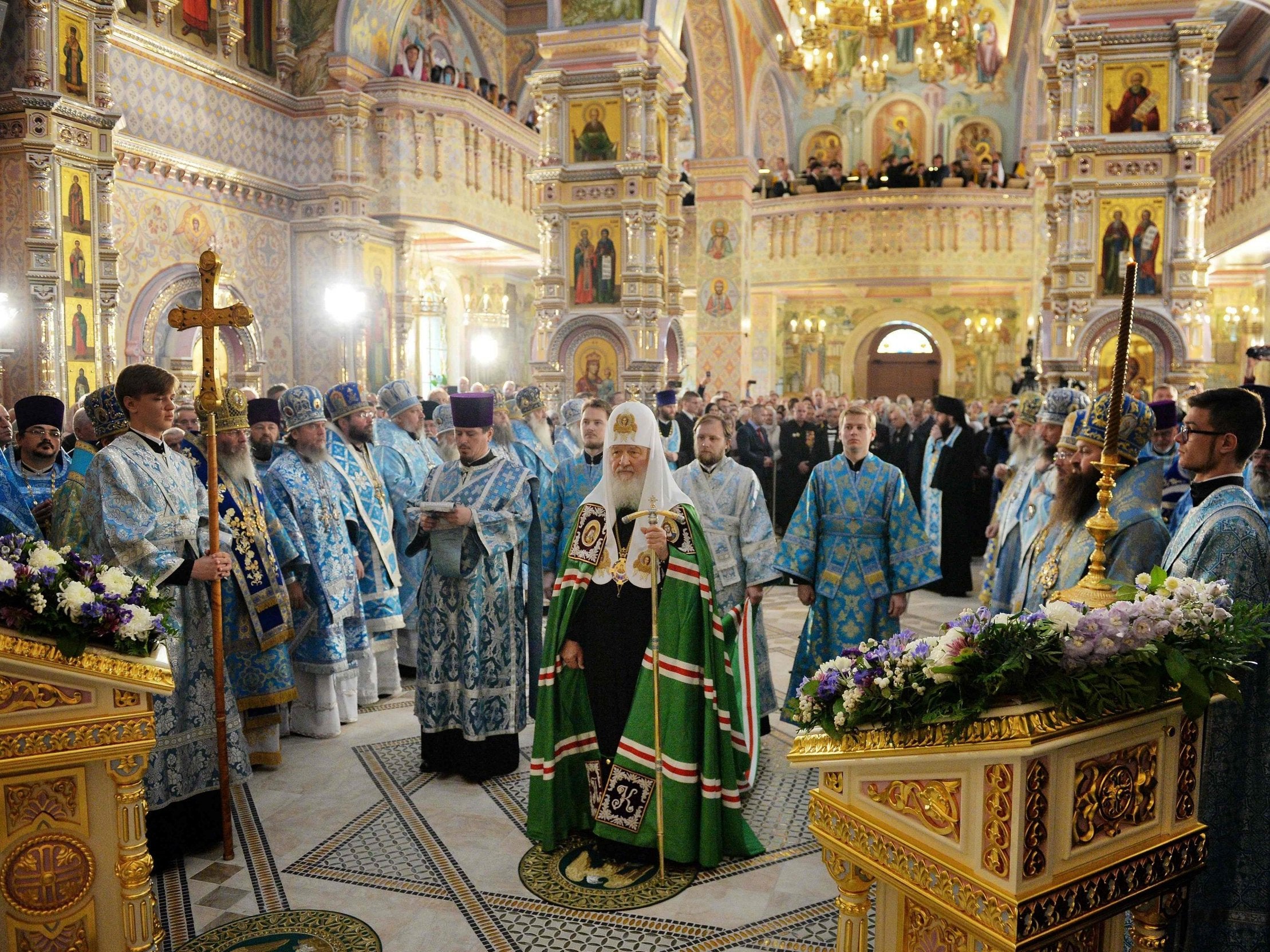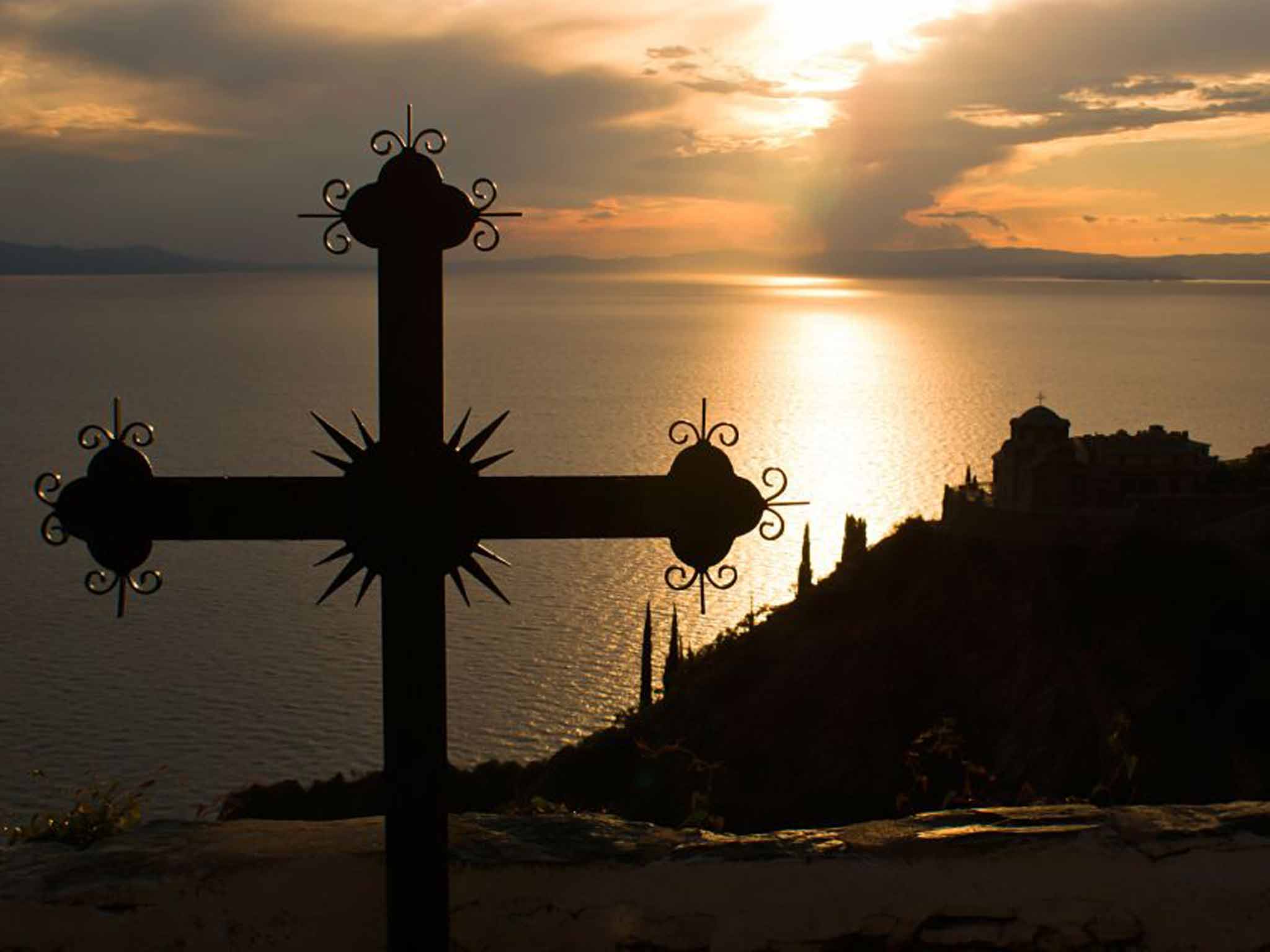Moscow weighs up the consequences of Orthodox Church schism
Analysis: The developments look set to exacerbate divisions in Ukraine, says Oliver Carroll


On Monday evening, the Synod of the Russian Orthodox Church resolved to break with the Patriarchate of Constantinople – setting the largest branch of Eastern Orthodoxy on a collision course with its spiritual centre.
The move was driven by a decision by Bartholomew I of Constantinople to remove barriers to the Ukrainian Orthodox Church gaining autocephaly (independence) from Moscow. A spokesman for the Russian church had called the decision “lawless”, an “intrusion into [its] canonical territory”, and one that “liquidated” Constantinople as the centre of Eastern Orthodoxy.
That, at least, was the detail. The broader context is the complete breakdown in relations between Moscow and Kiev – and a four-year war that has left more than 10,000 people dead.
The matter of Ukrainian autocephaly has been fiercely politicised on both sides. After personally lobbying Bartholomew I, Ukrainian president Petro Poroshenko has used the issue to shore up a flagging re-election campaign. His new political slogan, a populist triad pitting “faith” alongside “language” and “army”, is plastered on billboards all across the country.
Mr Poroshenko accuses the Kremlin of using the Russian Orthodox Church to undermine Ukrainian sovereignty, and supporting pro-Russian separatists in eastern Ukraine. Many individual Russian Orthodox parishes did, in fact, swing behind separatist authorities, at a time when other confessions were openly persecuted.
The developments look set to exacerbate divisions in Ukraine, where three Orthodox churches are currently active, two excommunicated until recent developments.
The main rival to the Moscow Patriarchate, the Kiev Patriarchate, was formed after the breakup of the Soviet Union. Its leader, Patriarch Filaret, charted a fiercely independent course, supported the EuroMaidan revolution, and has been especially critical of Russia and its president, whom he has described as “possessed by Satan”.
On Tuesday, Russian presidential spokesman Dmitry Peskov signalled that Moscow would give away little in fighting for its church’s corner. The Kremlin was “very concerned” at recent developments, he told journalists, and moves to “hound” believers would be met with a “political and diplomatic” response. Less convincing was his claim that the Kremlin did not “get involved in ecumenical matters”. A security council meeting had, after all, been convened on the subject two days earlier.
The Russian Orthodox Church has already laid out some of the main consequences of its decision to break off relations.
Speaking to a Russian news agency, spokesman Igor Yakimchuk said the 100 million followers of the Moscow Patriarchate will be forbidden from praying in churches that remain under the order of the Constantinople Patriarchate. Those who fall foul of the new rule will be obliged to repent of their sins.
Mr Yakimchuk also confirmed the rule would extend to the 20 monasteries of Mount Athos in Greece, considered to be the holiest place on the Orthodoxy map. Every year thousands of Russian men – women are not allowed – make pilgrimages there, and the destination is especially popular with Russia’s ruling elite. Russian president Vladimir Putin has visited, as has his defence minister Sergei Shoigu. Right on the eve of Monday’s decision, leading members of the ruling United Russia party called by.
The loss of the symbolic Mount Athos would add to the sense of isolation for a church that once aimed to become the centre of the Orthodox world. Before Monday’s decision, Constantinople was officially recognised to be the “first among equals”. But the Russian church, with its wealth and more than 100 million followers, always added a question mark to that formula.

Relations were strained at various points throughout the last century. Constantinople is yet to recognise the autocephaly the Russian church granted an American branch in 1970. In 1996, the Russian broke off relations for three months on the issue of control of the church in Estonia. Eventually, a compromise was reached.
This time, things look to be for the long haul.
Andrei Kurayev, a protodeacon and critic of the clerical leadership, told The Independent that the Russian Orthodox Church had enacted a “stubborn” policy of “self-isolation”. The Moscow Patriarchate was applying sanctions on its own people, and on the direct order of the Kremlin. It was, he suggested, akin to “bombing Voronezh”.
The result, he said, could well be the start of a Russian reformation.
“It won’t happen in next week, or month. But the polemics are such that you’d need to think deeply about the old canons, and this could lead to reformatting Orthodoxy in its entirety.”
Subscribe to Independent Premium to bookmark this article
Want to bookmark your favourite articles and stories to read or reference later? Start your Independent Premium subscription today.
Join our commenting forum
Join thought-provoking conversations, follow other Independent readers and see their replies
Comments